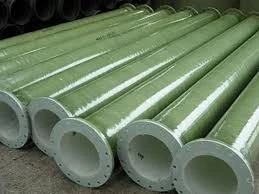
-
 Afrikaans
Afrikaans -
 Albanian
Albanian -
 Amharic
Amharic -
 Arabic
Arabic -
 Armenian
Armenian -
 Azerbaijani
Azerbaijani -
 Basque
Basque -
 Belarusian
Belarusian -
 Bengali
Bengali -
 Bosnian
Bosnian -
 Bulgarian
Bulgarian -
 Catalan
Catalan -
 Cebuano
Cebuano -
 China
China -
 China (Taiwan)
China (Taiwan) -
 Corsican
Corsican -
 Croatian
Croatian -
 Czech
Czech -
 Danish
Danish -
 Dutch
Dutch -
 English
English -
 Esperanto
Esperanto -
 Estonian
Estonian -
 Finnish
Finnish -
 French
French -
 Frisian
Frisian -
 Galician
Galician -
 Georgian
Georgian -
 German
German -
 Greek
Greek -
 Gujarati
Gujarati -
 Haitian Creole
Haitian Creole -
 hausa
hausa -
 hawaiian
hawaiian -
 Hebrew
Hebrew -
 Hindi
Hindi -
 Miao
Miao -
 Hungarian
Hungarian -
 Icelandic
Icelandic -
 igbo
igbo -
 Indonesian
Indonesian -
 irish
irish -
 Italian
Italian -
 Japanese
Japanese -
 Javanese
Javanese -
 Kannada
Kannada -
 kazakh
kazakh -
 Khmer
Khmer -
 Rwandese
Rwandese -
 Korean
Korean -
 Kurdish
Kurdish -
 Kyrgyz
Kyrgyz -
 Lao
Lao -
 Latin
Latin -
 Latvian
Latvian -
 Lithuanian
Lithuanian -
 Luxembourgish
Luxembourgish -
 Macedonian
Macedonian -
 Malgashi
Malgashi -
 Malay
Malay -
 Malayalam
Malayalam -
 Maltese
Maltese -
 Maori
Maori -
 Marathi
Marathi -
 Mongolian
Mongolian -
 Myanmar
Myanmar -
 Nepali
Nepali -
 Norwegian
Norwegian -
 Norwegian
Norwegian -
 Occitan
Occitan -
 Pashto
Pashto -
 Persian
Persian -
 Polish
Polish -
 Portuguese
Portuguese -
 Punjabi
Punjabi -
 Romanian
Romanian -
 Russian
Russian -
 Samoan
Samoan -
 Scottish Gaelic
Scottish Gaelic -
 Serbian
Serbian -
 Sesotho
Sesotho -
 Shona
Shona -
 Sindhi
Sindhi -
 Sinhala
Sinhala -
 Slovak
Slovak -
 Slovenian
Slovenian -
 Somali
Somali -
 Spanish
Spanish -
 Sundanese
Sundanese -
 Swahili
Swahili -
 Swedish
Swedish -
 Tagalog
Tagalog -
 Tajik
Tajik -
 Tamil
Tamil -
 Tatar
Tatar -
 Telugu
Telugu -
 Thai
Thai -
 Turkish
Turkish -
 Turkmen
Turkmen -
 Ukrainian
Ukrainian -
 Urdu
Urdu -
 Uighur
Uighur -
 Uzbek
Uzbek -
 Vietnamese
Vietnamese -
 Welsh
Welsh -
 Bantu
Bantu -
 Yiddish
Yiddish -
 Yoruba
Yoruba -
 Zulu
Zulu
corrosion resistant fiberglass
Exploring Corrosion-Resistant Fiberglass A Solution for Modern Industries
In today’s industrial landscape, the demand for durable and long-lasting materials is more pronounced than ever. Among the various solutions available, corrosion-resistant fiberglass stands out as a robust alternative to traditional metal components. This versatile material offers exceptional resistance to chemicals and environmental factors, making it a preferred choice for a myriad of applications across diverse industries.
What is Corrosion-Resistant Fiberglass?
Corrosion-resistant fiberglass is a composite material made from plastic reinforced by fine glass fibers. The main advantages of this type of fiberglass lie in its ability to withstand rust and corrosion, thus enhancing its longevity and reliability. This characteristic makes it especially valuable in industries where processes involve exposure to aggressive chemicals, moisture, or extreme temperatures.
Benefits of Corrosion-Resistant Fiberglass
1. Durability One of the most significant advantages of corrosion-resistant fiberglass is its strength. Unlike metals that can corrode and weaken over time, fiberglass maintains its structural integrity even under harsh conditions. This durability results in less frequent replacements, leading to long-term cost savings and reduced downtime in industrial operations.
2. Lightweight Corrosion-resistant fiberglass is considerably lighter than many traditional materials, which can contribute to easier handling and installation. This lightweight nature also makes it an excellent choice for applications where reducing weight is critical, such as in aerospace and automotive sectors.
3. Chemical Resistance Fiberglass exhibits exceptional resistance to many chemicals, including acids, bases, and solvents. This feature is particularly crucial for industries such as chemical processing, pharmaceuticals, and wastewater treatment, where equipment and storage tanks are often subjected to aggressive substances that could cause conventional materials to fail.
4. Low Maintenance Requirements Due to its resistance to corrosion, fiberglass requires minimal maintenance. Unlike metal structures that may need regular inspections and repainting to prevent rust, fiberglass components can remain functional with little more than routine cleaning, saving both time and money.
5. Versatility Corrosion-resistant fiberglass can be molded into various shapes and forms, making it suitable for numerous applications. From storage tanks and pipes to gratings and structural components, the versatility of fiberglass provides tailored solutions for different needs.
corrosion resistant fiberglass

Applications Across Industries
The usage of corrosion-resistant fiberglass spans several sectors, including
- Chemical Processing Fiberglass tanks and piping systems are commonly used for storing and transporting corrosive materials, ensuring safety and efficiency.
- Oil and Gas In this sector, fiberglass can be utilized for offshore structures, pipelines, and other components where exposure to harsh environments is inevitable.
- Water Treatment Fiberglass is often used in the fabrication of valves, pumps, and filtration systems to resist the degradation caused by water and chemicals commonly found in treatment processes.
- Construction As a structural material, fiberglass reinforced with corrosion-resistant properties can be found in bridges, buildings, and marine applications, providing longevity and reducing maintenance costs.
Conclusion
As industries continue to evolve, the need for innovative materials that can withstand the challenges posed by corrosion and harsh environments becomes increasingly important. Corrosion-resistant fiberglass provides an excellent solution, boasting durability, lightweight properties, and exceptional chemical resistance. Its applications are as diverse as the industries that utilize it, showcasing the vital role this material plays in modern manufacturing and infrastructure.
In conclusion, the future looks promising for corrosion-resistant fiberglass as it addresses many of the material challenges faced by industries today. By adopting this advanced material, companies can not only enhance the performance and lifespan of their equipment but also contribute to overall efficiency and sustainability in their operations. Whether in chemical processing, oil and gas, or construction, corrosion-resistant fiberglass is poised to remain a key player in protecting investments and ensuring safety in the face of corrosion challenges.









